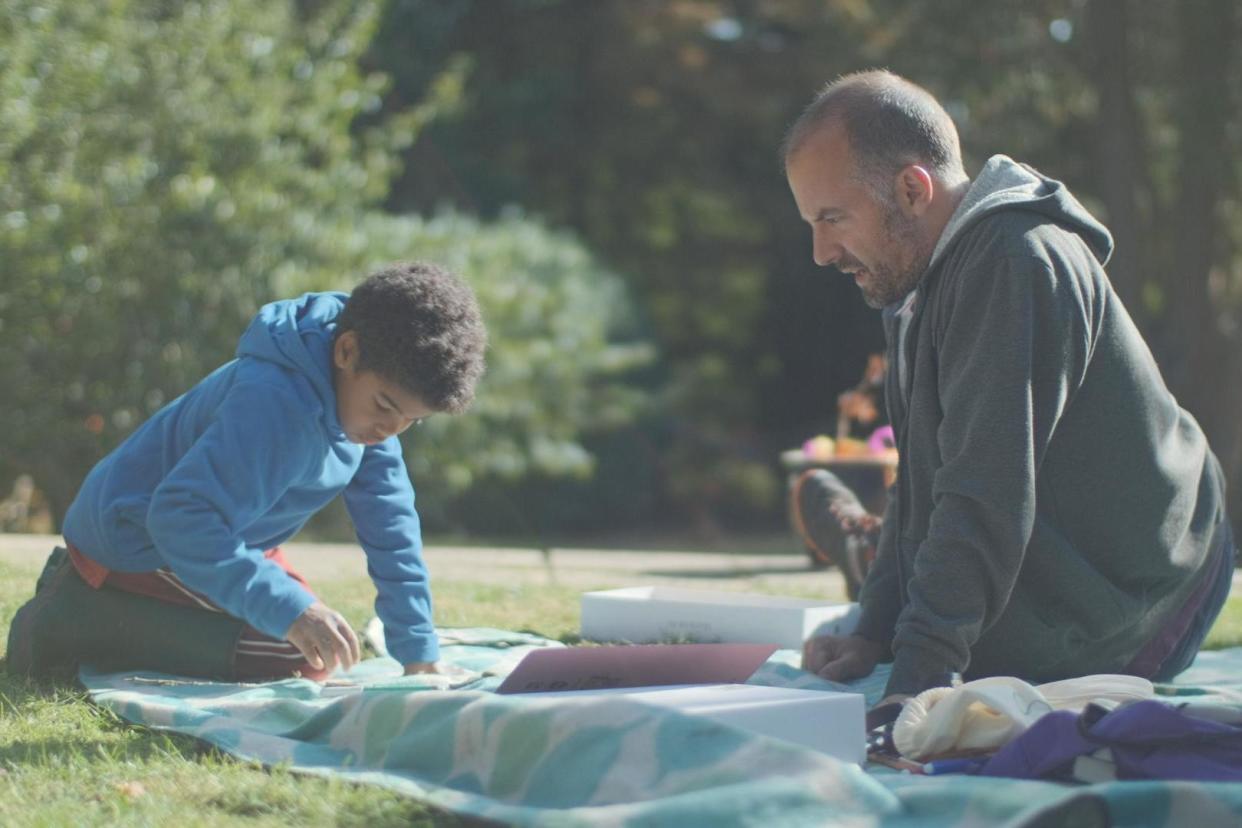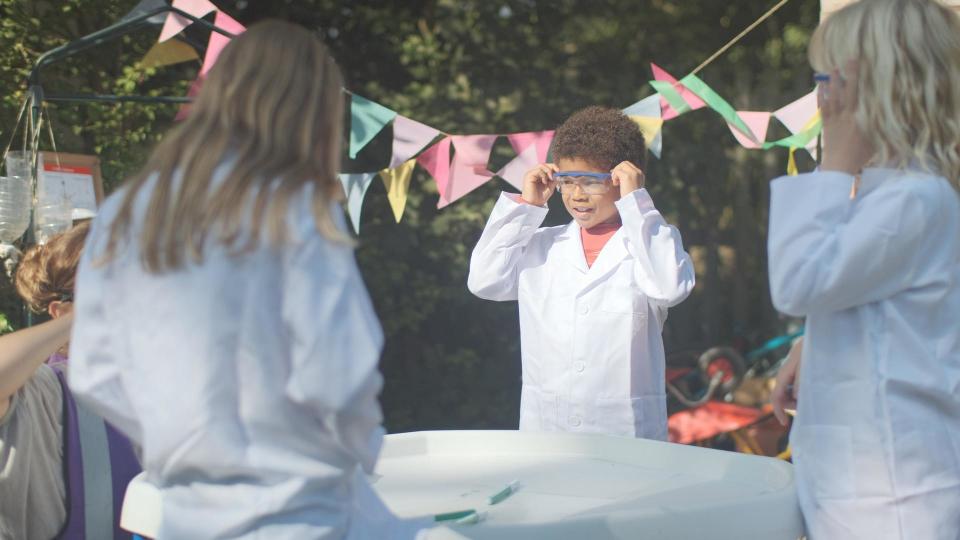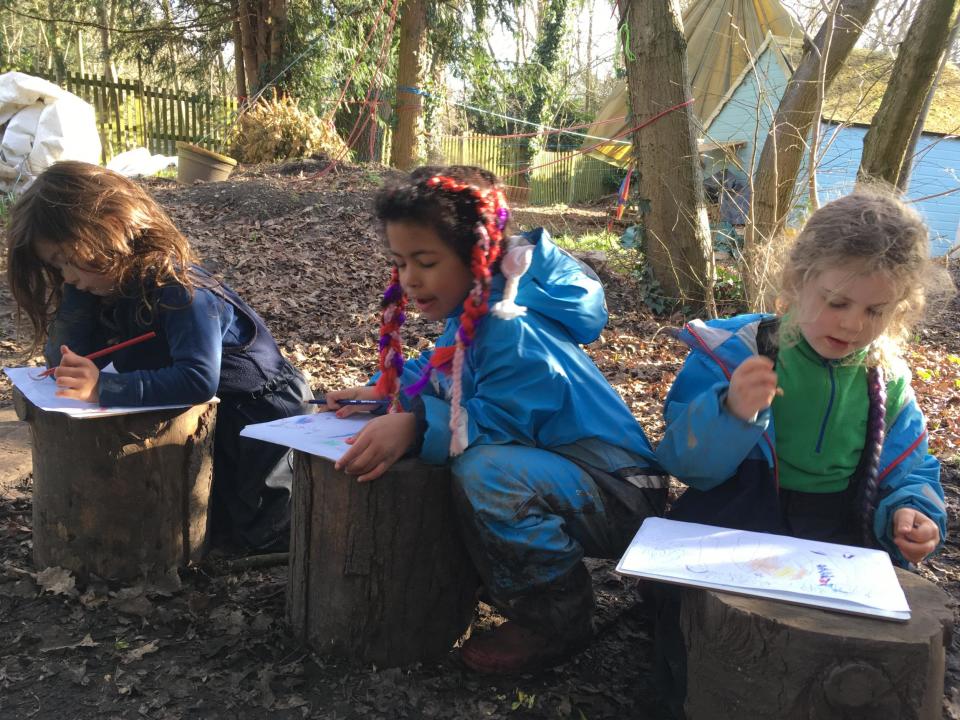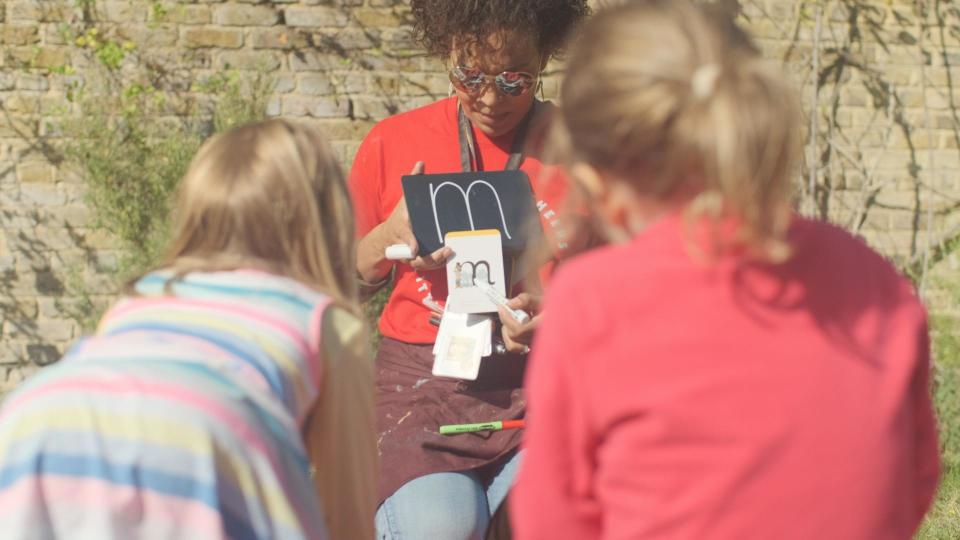'We teach maths outside': Head of London’s outdoor education chain says open air learning should be used to fully reopen schools safely

A London outdoor teaching expert believes "forest schools" can be a model for fully re-opening English schools safely.
Leanna Barrett opened the capital’s first outdoor primary school, Liberty Woodland School in Worcester Park, last year.
Pupils aged four to 11 spend 95 per cent of the day outside, studying maths and English in the fresh air, even in winter.
Scottish local authorities revealed earlier this month that they are actively looking into outdoor learning as a model for reopening the country’s schools from August.

Scotland’s children’s minister, Maree Todd, has highlighted positive impacts of outdoor learning, saying: “This model [outdoor learning] could have many benefits for maintaining physical distancing and minimising risk of transmission as part of the transition from lockdown back into early learning and childcare and school.”
Schools in England will partially re-open to certain year groups next week, with measures including two metre gaps between pupil desks to ensure social distancing.
Ms Barrett, a former civil servant who established Little Forest Folk - a group of six outdoor nurseries based in London parks that won the Queen’s Award for Enterprise in 2015 - before launching the primary, told the Standard she believes the post-lockdown return could see “the beginning of a revolution” in “forest schools” like hers going mainstream.
She said: “I do think this could be the beginning of a revolution in what is possible.

“I think the Department of Education should seek the advice of outdoor education providers around the country.
“I have called and offered my help. I think it would be great if somebody would use us as a research base to see evidentially what works. I haven’t heard back yet.”
She added: “For us it has taken five years to get to the point where we are now. We can tell you all of the things that didn’t work, the hurdles we had to overcome.
“Everything that everyone else is scrabbling to try and learn to do - trying to figure out how to teach children in small groups, how they can take the learning outdoors, playing with nature instead of plastic resources indoors - all this is stuff we have been doing for five years in the nurseries and six months in the school.
“We completely successfully teach reading, we teach maths - it’s not that we don’t teach core subjects here, we do teach them and we teach them outside.”
The school’s fees are £3,995 per term, there is a one-to-eight teacher-pupil ratio, and it runs on a four-day week Monday to Thursday, 9am to 5pm. The idea is to enable full working days for parents four days a week, and minimise travel time.

Typically each day begins in a circle around the campfire. The school’s 26 pupils eat lunch — cooked in the Edwardian house that is the school’s official building — on tree stumps, swing from trees and do art, music and woodwork projects in sheds.
Ms Barrett, who will take in another 19 pupils from September, has made changes to allow for social distancing from next week. The school will have time slots for drop-offs, distancing in outdoor lessons and split returning year groups into two “bubbles”.
She added: “I feel like we are the luckiest school in the country right now… And I think the more time teachers spend with their kids outside, the more they will realise being outside can work for academic learning, as well as wellbeing."
A Department for Education spokesperson said: “We want children back in schools as soon as possible, because being with their teachers and friends is so important for their education and their wellbeing.
“Our guidance to schools in planning for the return of more pupils encourages the use of outside space for education, where this is possible."


